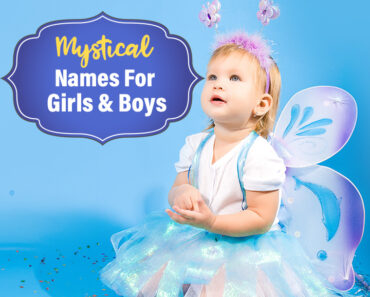The sight of a baby crying can worry parents for sure. Nevertheless, it is common for babies to cry for a total of three hours a day. Crying serves various purposes and may communicate different emotions of the baby. In some cases, their crying might only be their way of telling you that they need attention and care. As time passes, you may be able to tell apart various types of cries and learn ways to manage them effectively.
Read on to know why babies cry, how to understand their cries, and ways to cope with their crying spells.
Why Do Babies Cry?
All babies cry, and they do so to communicate with their caregivers. Since babies cannot talk, crying works as an innate natural way to share their feelings and emotions, often related to their basic needs. Below are the common reasons why babies cry (1) (2).
- Hunger
- Sleepiness
- Overfeeding
- Uncomfortable clothing or ambiance
- Soiled diaper
- Pain or discomfort
- Colic
- Attention and cuddling
Some breastfeeding babies may cry as an effect of food items consumed by the mother. For instance, lactating mothers who consume too much coffee may notice their baby often crying since caffeine can reach the baby through breast milk. It may lead to difficulty falling asleep, crankiness, and crying.
Older babies may figure out cause and effect. Therefore, they may cry only to gain parents’ attention and cuddles. Contrary to popular beliefs, gassiness and spitting up do not cause a baby to cry unless they are associated with a problem that causes pain, leading to a baby crying.
What Are The Types Of Baby Crying?
You may gradually notice certain types of cries or that specific actions address certain cries. These cries may vary from one baby to another. Below are the most common types of cries seen in babies associated with their basic needs.
- Hungry cry: Newborn babies often feed about eight to 12 times a day (3). Thus, they may express their hunger by crying. These cries stop once you initiate feeding, with the baby calming down immediately. Once you are done feeding, the baby is calm and satiated. A baby’s cries due to hunger may often turn into loud wailing if you do not address them on time (4).
- Sleepy cry: Most newborns sleep for about 16 to 18 hours out of 24 hours of a day (5). A baby may get tired quickly, and if not placed to sleep, it is inevitable for them to cry. In other scenarios, if your baby wakes up all of a sudden after you have put them down to sleep and cannot find you anywhere near, they will start excessive crying.
- Uncomfortable cry: It could be due to soiled diapers or unfavorable ambient temperature or clothing. You may be able to tell this crying apart because it may occur outside of the baby’s usual sleeping or feeding time. You may check the baby’s diapers or the temperature of their room. A change of clothing in some cases may help calm down the baby, especially if the weather is warm.
How To Soothe A Crying Baby?
Most babies calm down when their fundamental needs, such as feeding and changing diapers, are addressed. Nevertheless, there could be moments when the baby is overly fussy and cranky that you may need extra efforts to calm them down. You may try the following interventions in such cases (6).
- Swaddle them gently in a warm cloth or blanket and cuddle with them.
- Pat their chest or gently stroke their head while talking to them softly.
- Introduce white noise in the room where your baby is sleeping and omit any distractions or loud noises.
- Take them for a walk around the house or out in a stroller or baby carrier around the neighborhood.
- Smile at them while rocking them gently in your arms. You may also sing or talk to them.
- Try giving a warm bath followed by a gentle massage.
How To Cope With A Baby’s Crying Spells?
There could be times when the baby’s crying may be persistent, driving you to exhaustion and frustration. In such cases, try the following ways to cope with the baby’s crying (6).
- Take the help of a family member or friend. Sometimes, seeing another face is enough distraction to calm the baby down.
- If you do not have anyone around, place the baby in a crib, ensure they are safe, go to the next room, and calm yourself down. Take a break to clear your thoughts and then return to the baby.
- Do not get overwhelmed by the baby’s crying or let it demoralize you. Remember, crying is an innate tendency of all babies. If your baby cries, it does not mean that you are a bad parent.
- Visit a counselor or a parenting expert with your baby when they are calm. You may discuss the issues you are facing and learn ways to cope with the situation better.
When To Call The Doctor?
Consult a doctor about your baby’s crying in the following scenarios (2).
- The baby’s crying is accompanied by fever, vomiting, diarrhea, or pale skin. This may indicate illness.
- The baby cries when you touch their abdomen or a part of the body, indicating they may be in pain.
- The crying continues for several hours at a time or does not seem to go away even when the baby’s needs are met and they are healthy. This could be colic when the baby cries for no explained reason.
Frequently Asked Questions
1. Is it okay to let a baby cry if nothing is wrong?
It is okay to let your baby cry for a while if you do not notice any signs of illness or discomfort and their basic needs of feeding and changing diapers are met. However, if the crying continues for a long time, consult a doctor.
2. At what age do babies cry the most?
Babies may cry the most between the ages of six and eight weeks, which is in the second month of their lives (1).
3. Can too much crying harm a baby?
There is no evidence that too much crying in healthy babies adversely affects their health.
Conclusion
Babies frequently cry in the first few months after birth. But dealing with these crying spells can be emotionally and physically demanding and difficult for parents. These cries may indicate either hunger or discomfort at times, but there may also be no apparent reason behind them. In such cases, swaddling your baby or spending some time with them usually helps soothe them. However, if you notice your baby crying more frequently, accompanied by other signs of concern, talk to a pediatrician about it.
References:


































